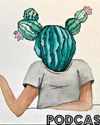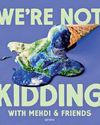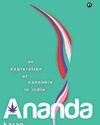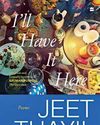
Neelam Agarwal, a 57-year-old homemaker from Noida, UP, was in the thick of festival celebrations, practicing her dance steps for a special show when she started experiencing pain in her right foot. Slowly, the pain exacerbated to a point where she had to stop and sit down. By the time she reached home, tears streamed down her face from sheer physical agony. Her family rushed her to the hospital where an X-ray revealed a hairline fracture. Her doctor said it was because of osteoporosis.
It turned out Neelam had a long history that contributed to the incident. Her mother had suffered from Parkinson’s disease, osteoporosis, and osteoarthritis, putting Neelam at risk for bone, joint and neurological disorders. She had also experienced debilitating foot pain after a hysterectomy done in her 30s, and a fracture when she slipped and fell in the bathroom at age 50.
Like Neelam, many people with a family history of fractures and breaks tend to view them as isolated events, but it’s likely that such episodes indicate a deeper, more insidious, problem— weak bones caused by a large variety of factors including poor diet, lack of exercise, menopause, age and even side effects of medication.
WHAT IS OSTEOPOROSIS?
The term osteoporosis means, literally, ‘porous bone’. The inside of our bones resembles a honeycomb, a web of cells that break down and are replenished with new ones, just like the cells in other parts of our bodies.
But, sometimes, the spaces in that honeycomb-like structure become too great when new bone cells are not replenished, making our bones even more fragile and brittle. The point at which bone density becomes low enough to be considered a serious condition is called osteoporosis. It leads to weakness of the skeleton and increased risk of fractures, particularly of the spine, wrist, hip, pelvis, and upper arm, sometimes with fatal consequences.
Esta historia es de la edición November 2019 de Reader's Digest India.
Comience su prueba gratuita de Magzter GOLD de 7 días para acceder a miles de historias premium seleccionadas y a más de 9,000 revistas y periódicos.
Ya eres suscriptor ? Conectar
Esta historia es de la edición November 2019 de Reader's Digest India.
Comience su prueba gratuita de Magzter GOLD de 7 días para acceder a miles de historias premium seleccionadas y a más de 9,000 revistas y periódicos.
Ya eres suscriptor? Conectar

ME & MY SHELF
Siddharth Kapila is a lawyer turned writer whose writing has focussed on issues surrounding Hinduism. His debut book, Tripping Down the Ganga: A Son's Exploration of Faith (Speaking Tiger) traces his seven-year-long journey along India's holiest river and his explorations into the nature of faith among believers and skeptics alike.

EMBEDDED FROM NPR
For all its flaws and shortcomings, some of which have come under the spotlight in recent years, NPR makes some of the best hardcore journalistic podcasts ever.

ANURAG MINUS VERMA PODCAST
Interview podcasts live and die not just on the strengths of the interviewer but also the range of participating guests.

WE'RE NOT KIDDING WITH MEHDI & FRIENDS
Since his exit from MSNBC, star anchor and journalist Mehdi Hasan has gone on to found Zeteo, an all-new media startup focussing on both news and analysis.

Ananda: An Exploration of Cannabis in India by Karan Madhok (Aleph)
Karan Madhok's Ananda is a lively, three-dimensional exploration of India's past and present relationship with cannabis.

I'll Have it Here: Poems by Jeet Thayil, (Fourth Estate)
For over three decades now, Jeet Thayil has been one of India's pre-eminent Englishlanguage poets.

Orbital by Samantha Harvey (Penguin Random House India)
Samantha Harvey became the latest winner of the Booker Prize last month for Orbital, a short, sharp shock of a novel about a group of astronauts aboard the International Space Station for a long-term mission.

She Defied All the Odds
When doctors told the McCoombes that spina bifida would severely limit their daughter's life, they refused to listen. So did the little girl

DO YOU DARE?
Two Danish businesswomen want us to start eating insects. It's good for the environment, but can consumers get over the yuck factor?

Searching for Santa Claus
Santa lives at the North Pole, right? Don't say that to the people of Rovaniemi in northern Finland